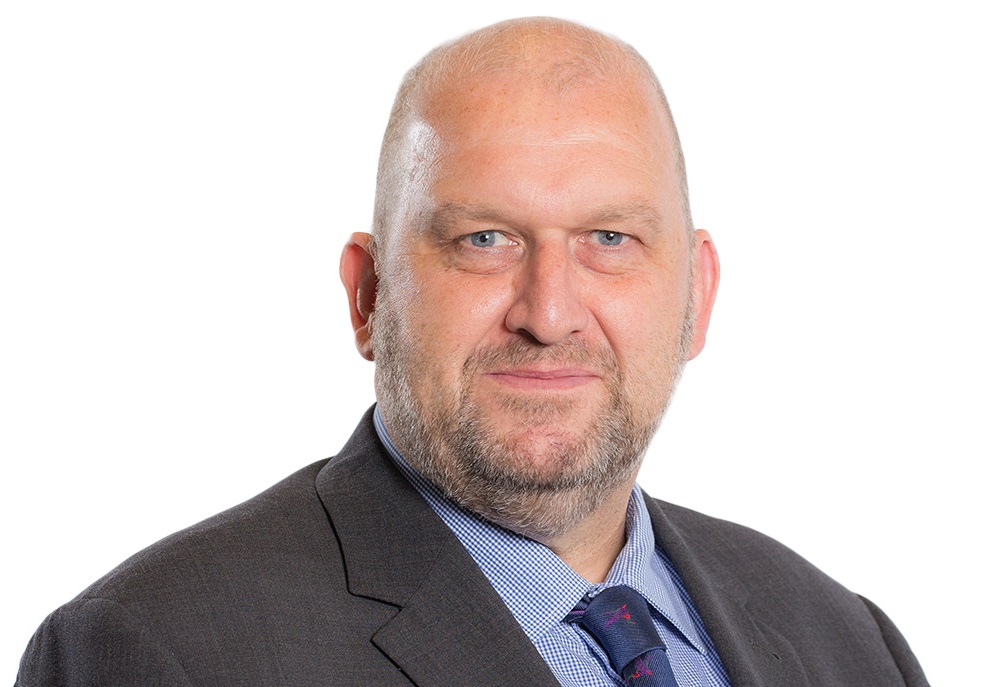Today’s Senedd Roundup: Coroner criticises Government over lack of care for Carl Sargeant

Owen Donovan, Senedd Home
The senior coroner for north Wales has criticised the Welsh Government at the conclusion of his inquest into the death of AM Carl Sargeant on November 7th 2017.
Mr Sargeant, 49, was found hanged at his home four days after he was sacked from his job as cabinet secretary for communities and children.
The Coroner, John Gittins, concluded the inquest this afternoon, with a formal verdict of suicide and a medical cause of death by hanging.
Mr Sargeant was also prescribed medication for depression at the time of his death following an undisclosed “major life event”.
Mr Gittins said: “No official arrangements were put into place by way of seeking to provide support to Carl Sargeant following the reshuffle despite the probability that the first minister knew of Mr Sargeant’s vulnerability in relation to his mental health, and that it is likely that the removal and particularly the reason for the removal would generate significant media interest.”
The coroner added he did not feel that Sargeant had received “pastoral” care.
Earlier this week the former First Minister, Carwyn Jones AM (Lab, Bridgend), provided contradictory evidence over a pastoral role supposedly given to Ann Jones AM (Lab, Vale of Clwyd). Mr Jones’ evidence was only corrected after Ann Jones was called to give evidence and denied she had been given a formal role to care for Sargeant.
Carwyn Jones was also directly accused of lying under oath by the Sargeant family’s barrister; he accepted there had been “misunderstandings”.
The Coroner additionally rejected submissions about the behaviour of Carl Sargeant at social events as “rumour” and “opportunistic”, as well as rejecting an application from the press for text messages between two senior Flintshire Labour figures (Aaron Shotton and Bernie Attridge) to be published.
In what’s likely to be a humiliation for the Welsh Government and civil service, a “prevention of future deaths” report will be issued following evidence over the support (or lack of) offered to ministers when dismissed from office.

Support for cross-party work on increasing the number of AMs
The Motion (Final/Amended Version)
The Senedd:
- Notes the publication of ‘A Parliament that Works for Wales‘ and its recommendations.
- Agrees that an increase in the number of Assembly Members is needed.
- Calls for further cross-party work to take these matters forward.
An under-powered parliament
Adam Price AM (Plaid, Carms. E. & Dinefwr) said that while the powers available to the Senedd have increased, when those powers can’t be used effectively it results in “the worst of all worlds”. A Finance Committee of 6 people cannot effectively scrutinise £2 billion worth of taxation powers. Also, once officeholders are discounted, Wales has 44 AMs, the Scottish Parliament has 113 MSPs and the UK House of Commons has 522 MPs.
“We are the only nation in the world….where the council chamber of the capital city has more members than the national Parliament. The average size of national Parliaments for countries like ours, with between 1 million and 6 million citizens, is around 140 Members. Indeed, if you applied the famous cube root rule….that the largest legislative body of a national legislature tends to be the cube root of the population….then the Senedd would have around 140 Members.”
– Adam Price AM
Rhun ap Iorwerth AM (Plaid, Ynys Môn) called for the Senedd to demonstrate “courage” by taking this argument out to people in order to improve scrutiny.
In the five months Delyth Jewell AM (Plaid, South Wales East) has spent in the Senedd, she’s seen for herself how limited AMs are in their ability to scrutinise the government due to the number of different roles AMs have to play. Scrutiny of legislation and regulations was often dependant on backbench AMs with huge time constraints and there was no “safety net” of a revising chamber.
Cross-party consensus
Speaking in her capacity as Chief Whip, Jane Hutt (Lab, Vale of Glamorgan), said Labour’s position was that more AMs were needed but there was disagreement over electoral reform. No changes should be introduced without a manifesto mandate.
Hefin David AM (Lab, Pontypridd) was persuaded by the need for single transferrable vote from his experiences at the 2016 election, where he saw how the current election system creates two tiers of AMs. He would prefer the electoral system change before there are any changes to the number of AMs.
“The majority of Assembly Members here work exceptionally hard and diligently….But, we are underpowered, not in effort but in simple numbers. We can say this confidently in light of comparisons with other regional Governments and Assemblies across Europe and the wider world. I say this confidently as a former member of the UK Parliament too, who has served as a backbencher and a Minister, a parliamentary aide, a Committee Chair, and more in Westminster.”
– Huw Irranca-Davies AM (Lab, Ogmore)
Mick Antoniw AM (Lab, Pontypridd) stressed the importance of “carrying people with you” when making major constitutional changes. While there was general agreement on a need for more AMs, there were “half a dozen different ideas” on what that would look like and how they should be elected.
Alun Davies AM (Lab, Blaenau Gwent) wanted electoral reforms that provide “equality of membership” instead of the divide between constituency and regional list members. He believed Plaid should withdraw the motion as it would cause division and there instead had to be a complete consensus.
No appetite
Mark Reckless AM (BXP, South Wales East) was one of the few dissenting voices, saying there was no public appetite for more politicians. He hinted his party would be willing to look at this issue again once the number of Welsh MPs is reduced to 29 and MEPs lose their posts after Brexit – a net loss of 15 politicians.
Leader of the Opposition, Paul Davies AM (Con, Preseli Pembs.), agreed that the increased workload has strained the Senedd’s resources, but the people have to be consulted properly before there’s any move to increase the number of AMs. The Tory position was that any increase in AMs had to be funded by a decrease in politicians elsewhere.
Reaching an agreement
On behalf of the Assembly Commission, the Llywydd, Elin Jones (Plaid, Ceredigion), believed there needs to be common ground on an electoral system which can win a supermajority of support before anything can change – but it was becoming increasingly impossible to argue against change.
“Our powers continue to increase, as we’ve heard: on taxation and on Brexit. The commission on justice is also expected to report in the autumn. With the case in favour of increasing the Assembly’s powers in that area also increasing, there’s a real possibility that we need to establish a justice committee to scrutinise the resulting work.
“That is a likely flavour of what is to come in future – more responsibilities, more expectation to scrutinise, but the same number of Members and hours in the day. But there is a better way that could be chosen that is more representational.”
– Llywydd, Elin Jones
Vote
The motion was carried by 35 votes to 15. For the record, the solitary Plaid vote against the amended version of the motion came from Helen Mary Jones AM (Plaid, Mid & West Wales).

Call for better respite services for carers
This week’s short debate was lead by Jayne Bryant AM (Lab, Newport West).
“Like having a second family”
Quoting a constituent, Jayne Bryant said Newport Carers Forum was “like a second family” and gave the constituent an opportunity to speak to others in the same situation. Being a carer was often a 24/7/365 role and carers often ensure families stay together.
The economic impact of unpaid care in Wales is estimated at £8.1billion, yet 72% of carers felt their contribution wasn’t appreciated. They need more support and the strain of caring can lead to carers developing health problems of their own:
“The impact that caring can have on both physical and mental health can be debilitating and long-lasting. The survey conducted last year found that 40% of carers said that they had not had a day off in over a year. Carers need regular breaks to safeguard their own health and well-being, enabling them to continue caring and to allow them to live a life alongside their caring responsibilities. As the Older People’s Commissioner for Wales has said, respite should not be viewed as ‘a break from the burden of caring’.”
– Jayne Bryant AM
Another constituent – a young carer – said they struggled with mental health problems after their mother received a terminal illness diagnosis, but a support group for young carers at their school “helped greatly” and enabled them to take part in fun activities and take breaks.
Bethan Sayed AM (Plaid, South Wales West) wondered whether the quoted figures were correct as they’ve been used for a while; she asked the Welsh Government to carry out work to get an accurate picture of the situation as it is now.
Dr Dai Lloyd AM (Plaid, South Wales West) said that as a GP he was finding that more and more people who would otherwise have been eligible for home care now no longer qualify because the threshold has risen due to a lack of funding.
Recognition of carers “vital”
Deputy Minister for Health & Social Services, Julie Morgan (Lab, Cardiff North) said that work was underway on developing a national young carers ID card. However, securing recognition of carers was vital as the Social Services and Wellbeing Act 2014 grants carers an equal right to support as the person they care for.
“….as part of the remit of the carers ministerial advisory group, its members will be developing ideas and solutions in response to the different issues faced by carers, including new and more flexible forms of respite. I know that some carers are already trialling different ways of using direct payments to purchase respite care or breaks. Since 2017-18, we’ve given £3 million of additional recurring funding to support local authorities to provide additional respite care for carers based on the need of carers in their area.”
– Deputy Minister for Health & Social Care, Julie Morgan
While there were a number of Welsh Government grants and additional funding available for support services for carers, the Deputy Minister accepted there was still a long way to go – though the Act has meant a great deal has been achieved since it was passed.

Creative Wales “coming soon”
Yesterday, the Senedd discussed the Culture Committee’s report on film and television production in Wales – summary here.
Progress can’t be allowed to stall
Committee Chair, Bethan Sayed AM (Plaid, South Wales West), believed there was a reason to celebrate successes in the film and TV industries, but the demands of the industry were moving at a faster pace than the government perhaps likes.
Several media funds are yet to make significant returns on investments despite existing in various forms for several years. There was also criticism of slow progress on the establishment of the Creative Wales body.
“We were told in February that the Minister would announce details on the form, function, preferred board members and the governance arrangements of Creative Wales in April of this year. The statement that was released in April gives no more information on any of these issues. It’s filled with well-meaning phrases such as, ‘Partnership and collaboration are key to successful delivery’, and that Creative Wales will embrace the synergies between the economy and culture of Wales. But there was no mention of how this will be done….”
Committee Chair, Bethan Sayed AM
Shadow Culture Minister, David Melding AM (Con, South Wales Central), noted that while Wales does better than most English regions here, we were still falling short on economic impacts. He said the potential of Welsh language productions was there, not only in terms of the cultural value but also in terms of marketing the country as a whole.
Caroline Jones AM (BXP, South Wales West) believes the future relies on building up home-grown production companies and talent instead of chasing Hollywood cash. It was important to keep up with a changing market where streaming services have exploded, so Welsh companies need to be supported to produce high-quality content across multiple platforms.
No date yet for Creative Wales
Deputy Minister for Culture, Media & Sport, Dafydd Elis-Thomas (Ind, Dwyfor Meirionnydd), said Welsh Government support for the industry has resulted in Cardiff becoming a centre of excellence for high-end productions and Wales generally becoming competitive as a filming location. Spend on the film and TV sector has increased from £35 million in 2016-17 to £55 million in 2018-19.
Creative Wales – as a proposed arms-length Welsh Government body – will develop a strategy to maintain growth in all of the creative industries, so not just film and TV. However, the Deputy Minister was cagey over precisely how long this process will take:
“Once the director, who will be an experienced official, is appointed through an external procurement process, then there will be moves to appoint a chair. And then, once a chair is appointed, there will be a call for board members. So, I am confident that the process of completing the establishment of Creative Wales will have been completed around the same time as Brexit. And if that isn’t sufficiently clear, then I am unable to give you more detail in terms of dates, because any recruitment process depends on the response that we receive.”
– Deputy Minister for Culture, Media & Sport, Dafydd Elis-Thomas
He hinted that major productions could be required to hold auditions in Wales as a condition of funding, while Creative Wales will also be responsible for marketing Wales’ creative industries abroad.
“All achievements count” under new school targets system
New guidance to make school uniforms “more affordable”
The Welsh Government is set to issue new legally-binding guidance over school uniforms, which will come into effect from September 2019.
The guidance will means schools will have to ensure uniforms are affordable, accessible and gender-neutral, with parents having the right to challenge schools which don’t take the guidelines into account.
This could mean that the requirement for a school logo on specific items of clothing can be reviewed, while trousers can’t be specifically determined to be for boys only. Via the Pupil Deprivation Grant, the Welsh Government provides grants of between £125-200 for pupils eligible for free school meals to buy uniforms and sports equipment.
Education Minister, Kirsty Williams (Lib Dem, Brecon & Radnor), said: “This guidance will help reduce the burden on families so our children can focus on fulfilling their potential and enjoying a healthy academic and social life.”
Government clampdown on pavement parking
An expert group is set to be established by the Welsh Government to look at ways to clamp down on motorists parking on pavements – as well as illegal parking generally. Parking on pavements is currently legal outside London, though motorists can be fined for dangerous parking or causing an obstruction.
Deputy Economy & Transport Minister, Lee Waters (Lab, Llanelli), said: “This is not about penalising car users, but redressing the balance of power in our urban environment. The numerous benefits of active travel are well documented, and we are in a position here in Wales to really do something positive in making it the obvious choice for all ages.”
Portuguese Government reveal reasons around alcohol minimum pricing law opposition
The Portuguese Government said its wines would be “less competitive” if Wales pressed ahead with plans to introduce a 50p-per-unit minimum alcohol price, as the details of its objections to the European Commission were released. They also questioned whether the policy was proportionate and would have the desired public health impact.
Afan Valley resort plans likely to collapse after developers are placed into administration
Plans for a £200 million holiday village and leisure resort in the Afan Valley near Croeserw look set to be scrapped after the company behind the development, Northern Powerhouse Developments, was placed in administration. It comes after aGuardian-ITV investigation into the finances of other projects linked to the company, as well as long-standing delays to a number of them.
Leader of Neath Port Talbot Council, Cllr. Rob Jones, said: “It would have brought tourism and money back into the valley with the proposed local employment for local people, and providing on-site services for local suppliers. It held so much promise – this could have been a game-changer for the Afan Valley and now it appears to be at risk.”
“Citizens’ Assembly” to meet in July
A “Citizens’ Assembly” made up of 60 members of the public selected to provide an accurate cross-section of the Welsh population will meet in Newtown from 19th-21st July as part of events to mark the 20th anniversary of devolution. The participants were invited from 10,000 randomly selected addresses.
The goal is for the Assembly to suggest new ways to improve engagement with the Senedd and the future direction of devolution. A report on the Citizen’s Assembly conclusions will be published in the autumn.
Support our Nation today
For the price of a cup of coffee a month you can help us create an independent, not-for-profit, national news service for the people of Wales, by the people of Wales.




